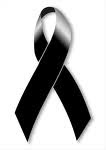Early and middle life
Saramago was born in 1922 into a family of landless peasants in Azinhaga, Portugal, a small village in the province of Ribatejo some hundred kilometers northeast of Lisbon.His parents were José de Sousa and Maria de Piedade. "Saramago", a wild herbaceous plant known in English as the wild radish, was his father's family's nickname, and was accidentally incorporated into his name upon registration of his birth.In 1924, Saramago's family moved to Lisbon, where his father started working as a policeman. A few months after the family moved to the capital, his brother Francisco, older by two years, died. He spent vacations with his grandparents in Azinhaga. When his grandfather suffered a stroke and was to be taken to Lisbon for treatment, Saramago recalled, "He went into the yard of his house, where there were a few trees, fig trees, olive trees. And he went one by one, embracing the trees and crying, saying good-bye to them because he knew he would not return. To see this, to live this, if that doesn't mark you for the rest of your life," Saramago said, "you have no feeling." Although Saramago was a good pupil, his parents were unable to afford to keep him in grammar school, and instead moved him to a technical school at age 12. After graduating, he worked as a car mechanic for two years. Later he worked as a translator, then as a journalist. He was assistant editor of the newspaper Diário de Notícias, a position he had to leave after the political events in 1975. After a period of working as a translator he was able to support himself as a writer. Saramago married Ilda Reis in 1944. Their only child, Violante, was born in 1947. From 1988 until his death in June 2010 Saramago was married to the Spanish journalist Pilar del Río, who is the official translator of his books into Spanish.
Later life and international acclaim
José Saramago didn't achieve widespread recognition and acclaim until he was in his mid-fifties, when his publication of Baltasar and Blimunda brought him to the attention of an international readership. This novel won the Portuguese PEN Club Award.
He became a member of the Portuguese Communist Party in 1969 and remained so until the end of his life. Saramago was also an atheist and self-described pessimist. His views have aroused considerable controversy in Portugal, especially after the publication of The Gospel According to Jesus Christ. Members of the country's Catholic community were outraged by Saramago's representation of Jesus as a fallible human being. Portugal's conservative government would not allow Saramago's work to compete for the European Literary Prize, arguing that it offended the Catholic community. As a result, Saramago and his wife moved to Lanzarote, an island in the Spanish Canaries.
Saramago learned he was to be made a Nobel Laureate in October 1998 when he was about to fly to Germany ahead of the Frankfurt Book Fair. This came as a surprise to him and his Portuguese editor, Zeferino Coelho, recalled: "When he won the Nobel, Saramago said to me, 'I was not born for all this glory.' I told him, 'You may not have been made for this glory, but I was!". He used his Nobel lecture to call his grandfather Jerónimo "the wisest man [he] ever knew." Despite the award, though, he remained a divisive character in Portugal, both criticised and praised.
 1998- José Saramago receiving the Nobel Prize for Literature
1998- José Saramago receiving the Nobel Prize for LiteratureHe was a critic of both the European Union and the International Monetary Fund; however, he stood (unsuccessfully) as a candidate for the European Parliament in the 2009 election.
Saramago, described as a "militant atheist", was outspoken in his political views, having delivered lectures as a Nobel laureate in his later life, once saying the treatment of Palestine by Israel was comparable to The Holocaust.
Saramago addresses the most serious of subject matters with empathy for the human condition and for the isolation of contemporary urban life. His characters struggle with their need to connect with one another, form relations and bond as a community; and also with their need for individuality, and to find meaning and dignity outside of political and economic structures.
Saramago died on 18 June 2010, aged 87, having spent the last few years of his life living in Lanzarote. He died as he lived : subtly and determinedly.
Bibliography
Bibliography
Terra do Pecado 1947
Os Poemas Possíveis 1966
Provavelmente Alegria 1970
Deste Mundo e do Outro 1971
A Bagagem do Viajante 1973
As Opiniões que o DL teve 1974
O Ano de 1993 1975 The Year of 1993
Os Apontamentos 1976
Manual de Pintura e Caligrafia 1977
Objecto Quase 1978
Levantado do Chão 1980
Viagem a Portugal 1981
Memorial do Convento 1982
O Ano da Morte de Ricardo Reis 1986
A Jangada de Pedra 1986
História do Cerco de Lisboa 1989
O Evangelho Segundo Jesus Cristo 1991
Ensaio sobre a Cegueira 1995
Todos os Nomes 1997
O Conto da Ilha Desconhecida 1997
A Caverna 2001
O Homem Duplicado 2003
Ensaio sobre a Lucidez 2004
Don Giovanni ou o Dissoluto Absolvido 2005
As Intermitências da Morte 2005
As Pequenas Memórias 2006
A Viagem do Elefante 2008
Caim 2009


Sem comentários:
Enviar um comentário